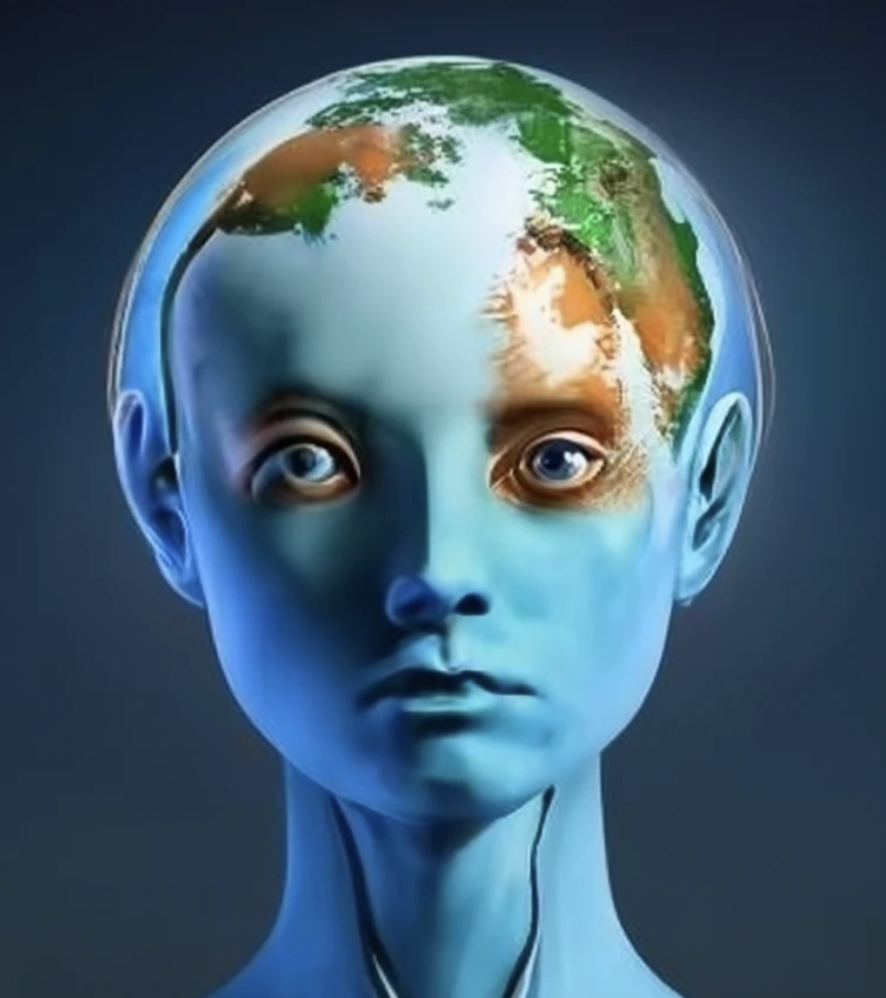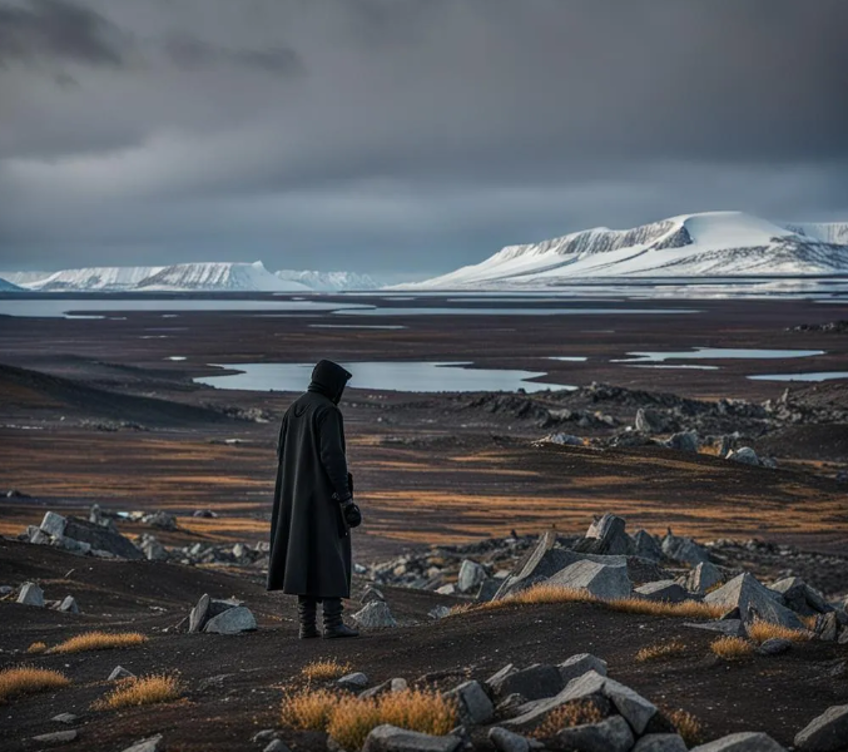

 |
 |
| Arctic Echoes |
|---|
| Donavin Harte & ChatGPT |
|---|

In the year 2100, I found myself standing amidst the unforgiving landscape of Northern Canada, a witness to the catastrophic consequences of a planet pushed mercilessly to its limits. The global temperature had soared four degrees higher than average, and the Arctic, once a symbol of pristine isolation, had transformed into a dystopian battleground. The echoes of ecological collapse reverberated through the once-frozen wilderness like mournful wails.
I stood in the remote town of Iqaluit, huddled with fellow survivors against biting winds and remnants of the frozen past. The snow and ice that had defined the region for centuries had given way to a desolate expanse of rocky terrain, the permafrost below melting and releasing long-buried secrets — secrets that spoke of a world on the brink of its own demise.
Clad in tattered clothing, we scoured the barren landscape for any signs of life. The air, once crisp and invigorating, now hung heavy with an unnatural warmth that seemed to seep into our very souls. The Arctic had become an echo of its former self, haunted by the whispers of a changing world and the remnants of life that once thrived.
The relentless warming had metamorphosed the once-snow-covered peaks into rocky slopes, devoid of the life that once flourished. Majestic glaciers, now defeated, had melted away, leaving scars on the landscape and rivers swollen with the tears of a despondent ecosystem. The town, once surrounded by the beauty of ice-covered fjords, now faced the encroachment of rising sea levels, a slow but inevitable drowning of hope.
In the melting ice, remnants of a forgotten past were revealed — a past that mirrored our own tragic trajectory. Abandoned research stations and the decaying remains of Arctic animals served not as reminders of what was lost, but as cruel reflections of our own impending demise.
The once-thriving Arctic wildlife had dwindled, struggling to adapt to the rapidly changing environment. Polar bears, once kings of the ice, now wandered aimlessly along the rocky shores, their natural habitats swallowed by the unforgiving waves. The haunting cries of Arctic birds searching for lost nesting grounds filled the air, their migratory patterns disrupted by the disintegration of frozen landscapes — a cacophony of despair that mirrored the bleakness of our existence.
A group of scientists from our community, including myself, stumbled upon a chilling discovery.
The melting permafrost had unleashed ancient viruses, dormant for millennia. These long-forgotten pathogens, now free in the warming environment, spread like a malevolent wildfire, infecting both wildlife and humans alike. Isolated and besieged by the dual threats of environmental collapse and a spreading virus, we faced a harsh reality — a reality in which despair became as infectious as the virus itself.
Our community's leaders, guided by a sense of duty and desperation, initiated a perilous journey to understand the nature of the virus and find a solution before it consumed us all. Trust, an increasingly elusive commodity, became a fragile thread holding together the remnants of a society unraveling under the weight of despair.
As we battled not only the infected creatures but also the harsh Arctic conditions, we discovered the shocking truth. The virus, a product of the warming climate, had mutated from ancient strains that had lain dormant for centuries. The relentless impact of climate change had disrupted the delicate balance of the Arctic ecosystem, unleashing unforeseen consequences on both the environment and its inhabitants — consequences that echoed the futility of our struggle.
In a confrontation with the virus and the mutated creatures it spawned, we fought not for salvation, but for a prolonged descent into the abyss. Trust became an illusion as paranoia and fear threatened to consume the remnants of a society on the brink. Every step we took was laden with the weight of despair, and every breath felt like a desperate gasp in a world that had abandoned us to our fate.
Amidst the struggles, sacrifices, and the chilling realization of our impending doom, we found no redemption. The journey became a harrowing exploration of futility, the inevitability of loss, and the surrender to an unforgiving reality. As we battled not just the infected creatures but the relentless Arctic conditions, the survivors faced the truth — the Arctic, once a realm of pristine beauty, had become a desolate graveyard for a species that failed to preserve its home and itself. The relentless impact of climate change had not only altered the physical landscape but had extinguished the very essence of our existence.
In the face of our doomed destiny, our unity became a tragic symphony of despair, a final crescendo in a world that had lost its melody. The Arctic, once a sanctuary of nature's grandeur, now stood as a testament to humanity's irreversible descent, leaving behind only the echoes of our futile struggles against the inevitable.
| Prompts and Collaboration with ChatGPT |
|---|
To start the creation of this story, I gave ChatGPT the prompt of, “Create a climate fiction horror story set in Northern Canada in the year 2100 where the global climate has risen four degrees Celsius”.
Once the initial story was created, I had ChatGPT—among other instructions—add more depth to the story, to focus on climate change impacts, not have anything supernatural in it (the original story included ghosts), and to add a sense of despair to the story.
After the corrections made in ChatGPT, I took the story and tweaked it a bit for personal preference while leaving the bulk of what we created in-tact.
| Home | AI Writing | More Cli Fi Stories | About Us |